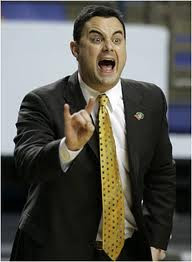
The natural inclination of some folks, when assessing Clemson's football program in 2011, is to look at the Tigers' inexperience at quarterback and express strong skepticism that they can win big.
Some recent history, however, would indicate a first-year starter at quarterback isn't as big an impediment to major success as perceived.
Three of the past four BCS titles have been won by teams with first-year starters at quarterback:
-- LSU did it in 2008 when Matt Flynn ascended to the starting role (it should be pointed out that Flynn had some significant experience in 2005 playing for the injured Jamarcus Russell).
-- Alabama did it in 2009 when Greg McElroy replaced John Parker Wilson as the Crimson Tide's signal-caller.
-- And Auburn did it last year with Cam Newton running the show after transferring from junior college.
Looking at this year's prognostications, Virginia Tech's possession of a first-year starter at quarterback (Logan Thomas) isn't scaring off grand forecasts. The Hokies are a popular Top 10 pick despite the loss of Tyrod Taylor and half their defensive starters.
None of this is to say that Tajh Boyd should be compared to Newton, or that Clemson fans should expect a BCS title, or that there aren't reasons for concern as Boyd prepares to take the reins. The Tigers' new offensive coordinator, Chad Morris, has not been afraid to say Boyd needs to make some significant advances in footwork, mechanics and decision-making before Clemson takes the field for real against Troy.
But there's been a lot of pressure on Clemson's offensive bells and whistles the past few years, and maybe Morris will shift a significant portion of the weight toward the system.
McElroy wasn't a great quarterback, but he didn't have to be because of Alabama's relentless running game and dominant defense.
Newton might've been the most dominant player in SEC history, but what would he have been as spectacular at, say, Tennessee or Georgia running more traditional stuff? I say no way. Auburn's offense became unstoppable last year not just because of Newton, but because of Newton combined with the presence of a cutting-edge, unpredictable offense that often made defensive backs and linebackers look silly.
Clemson fans probably shouldn't expect to put up 45 points per game this year. But it's reasonable to expect the offense to make major gains by the mere presence of an identity and a system that's new and fresh.
That's what happened in 1999 when Rich Rodriguez came to town under Tommy Bowden. The Tigers were not unstoppable on offense, but they were formidable and hard to stop.
In that situation, Boyd doesn't necessarily have to be great for the Tigers to be really good.
LW












